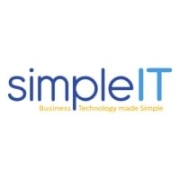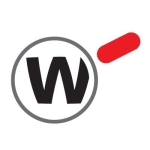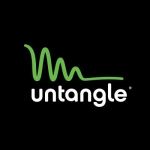What is our primary use case?
We are a reseller. We resell the product to our customers as we are an MSP. We use it for various different verticals, from manufacturing to schools to typical offices. That is mainly the use of this solution.
How has it helped my organization?
There are a lot of limitations with competitors like WatchGuard and SonicWall where there are a lot of costs for licenses to utilize their products. We felt that by going to pfSense, we have a little bit more freedom. We can use certain features without having to pay exorbitant costs for licensing. It is better for the small to medium-sized customers.
They are the most flexible, for sure. In my experience, it is quite easy to add features to pfSense and configure them. There is a lot of support from the local community. Because it is an open-community-built platform, there is a lot of support out there. Adding features and configuring them seems to be quite simple from my experience so far.
There is an overall performance increase. The hardware is much more performance-driven. The constant upgrades certainly make it easier to keep up with the evolving environment. The community-driven platform certainly helps to ensure that things are kept current.
pfSense gives us a single pane of glass management. There is a user interface and also the command line. The user interface is very friendly and easy to navigate. The single pane of glass management certainly increases productivity. The ability to look at one single pane of glass, add different widgets, and see things at a glance certainly helps to cut down the time of looking for certain statuses or things like that. It makes things more efficient.
We deal with pfSense Plus in a few cases. It can help minimize downtime. We have not experienced it in any sort of live environment, but I am confident that it would.
pfSense Plus provides visibility that enables us to make data-driven decisions.
It optimizes performance, and in most cases, it affects operations and makes things more efficient. Efficiency means money.
What is most valuable?
The ability to utilize the features instead of having to pay a license fee for every single thing that you want to use on a firewall is valuable. A lot of other companies give you a firewall out of the box that has very basic functionality, whereas pfSense gives you all the good features, and if you want to have more advanced features, you can pay a fee. You are able to use a lot of the features that you cannot use on other products. That is the best thing.
It is very good from a troubleshooting perspective. Things like logging are very good. We have been using these firewalls with filtering very successfully, and VPN has been very successful on them. We have not had any issues with that.
What needs improvement?
One thing that stuck out to me was the move to use plastic chassis on the Netgate devices or products. They are moving away from using metal chassis, and I find that the plastic seems to get hotter than the metal. Other than that, they are such great devices. They always seem to have all the cool things and bells and whistles.
One thing I would like to see Netgate do is to have a cloud-based management portal, similar to SonicWall, WatchGuard, Ubiquiti, etc. With all these platforms, you create an account, and you have a way to cloud-manage these products. Currently, one of the challenges that we face is not being able to manage those things from a centralized platform. It has always been one thing I have dreamt of for Netgate. That is the only place where it falls short. Apart from that, they are far superior in building, keeping up with the times, and keeping things current.
For how long have I used the solution?
It has been probably eight or nine years.
What do I think about the stability of the solution?
A couple of times we have had some strange issues that have been unexplainable, but overall, it is stable. I would rate it a nine out of ten for stability.
What do I think about the scalability of the solution?
It is scalable. I would rate it a nine out of ten for scalability.
How are customer service and support?
They have been fantastic. I have never had an issue, and it has always been very good. They are a highly intelligent and very resourceful team. I would rate them a ten out of ten.
How would you rate customer service and support?
Which solution did I use previously and why did I switch?
We have used everything, such as Cisco, SonicWall, and WatchGuard. You name the flavor. We have used them all, and Netgate is definitely a much better product than those. It also depends on the use cases.
How was the initial setup?
It has been very straightforward to very complex. We have set up entire data centers run by Netgate devices to small offices using a 2100. We have gone from the most complex to the least complex. We have seen everything in between.
Its deployment is a matter of hours. Our clients are small to medium size. We have about ten people working with pfSense.
It requires general maintenance. We have to keep up with firmware and updates. From a physical perspective, there is no maintenance.
What was our ROI?
It is very cost-effective. There is 100% ROI.
What's my experience with pricing, setup cost, and licensing?
They are on the higher end, but you do not get stuck with spending thousands of dollars every year. You do not have recurring license costs to have people use a simple feature like VPN. That makes it more cost-effective in the long term. There is a very good price point. No one ever complained, and I have not ever thought that they were overpriced. That is for sure.
What other advice do I have?
If you are looking to deploy a product that is reliable and high-performing and that is going to be cost-effective for yourself or your customer in the long term, you are doing the right thing by looking at Netgate.
I would rate Netgate pfSense a ten out of ten.
Which deployment model are you using for this solution?
On-premises
Disclosure: PeerSpot contacted the reviewer to collect the review and to validate authenticity. The reviewer was referred by the vendor, but the review is not subject to editing or approval by the vendor. The reviewer's company has a business relationship with this vendor other than being a customer: MSP


















